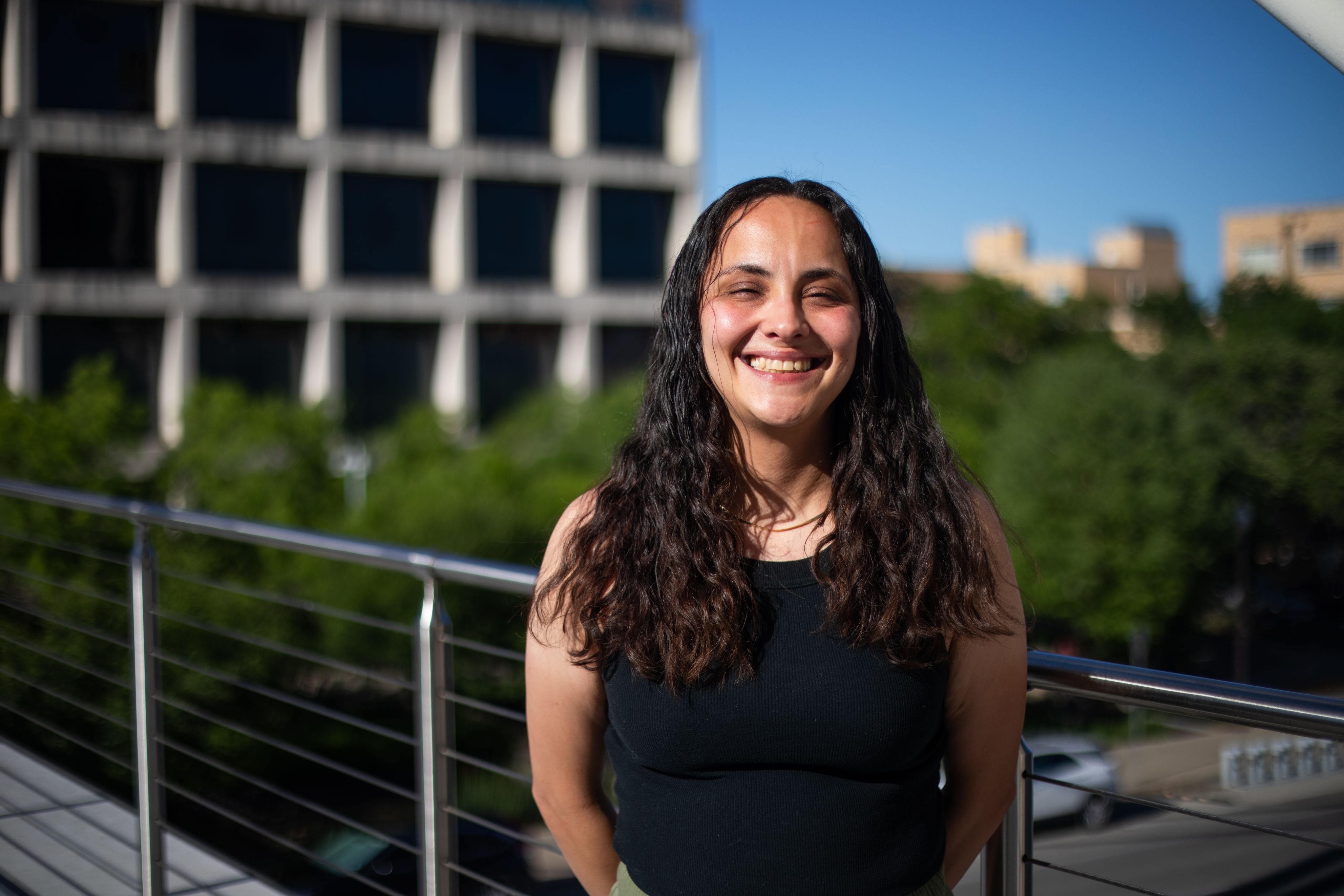Building a legacy, one story at a time
Building a legacy, one story at a time
Moody Writing Support Program celebrates a decade of helping students
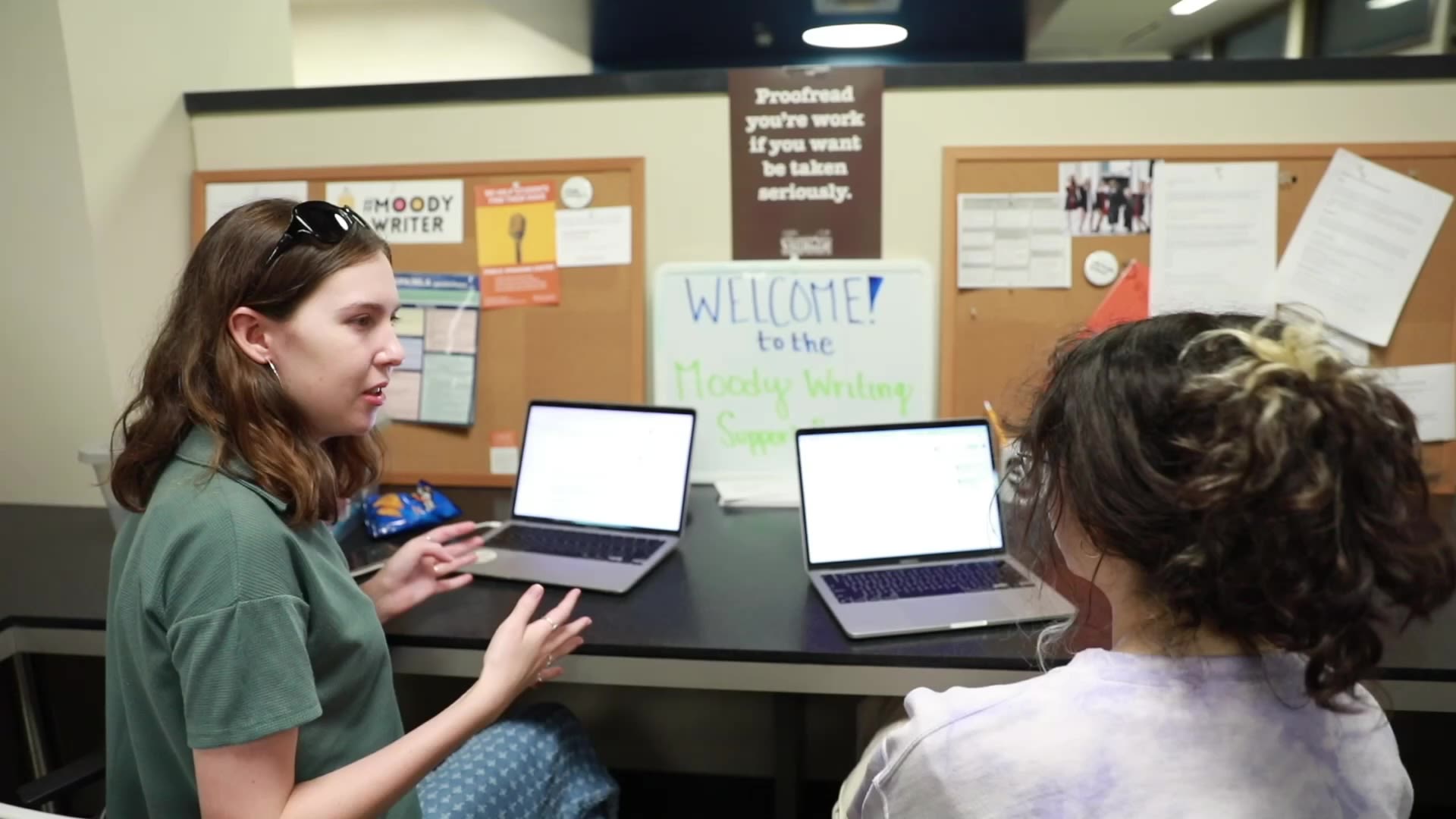
Ten years ago, a first-generation student from San Antonio came to Diana Dawson, then an adjunct professor in the School of Journalism and Media, feeling like a minnow who couldn’t keep up with the big fish. Growing up, everyone told her she was a great writer and should be a journalist. Now that she was in college, it was easier said than done.
Dawson rolled up her sleeves and worked with the student to get her up to speed. This wasn’t a new issue. Every semester, Dawson had students struggling with basic writing skills and had to send them to the University Writing Center. The students would get some of the help they needed but come back writing articles as rhetorical essays, not like journalists.
One day over lunch, then-Associate Vice Provost Carolyn Connerat offered Dawson funding to start a student success program. Dawson knew right away what Moody College needed: its very own writing program with coaches who understood the language of journalism.
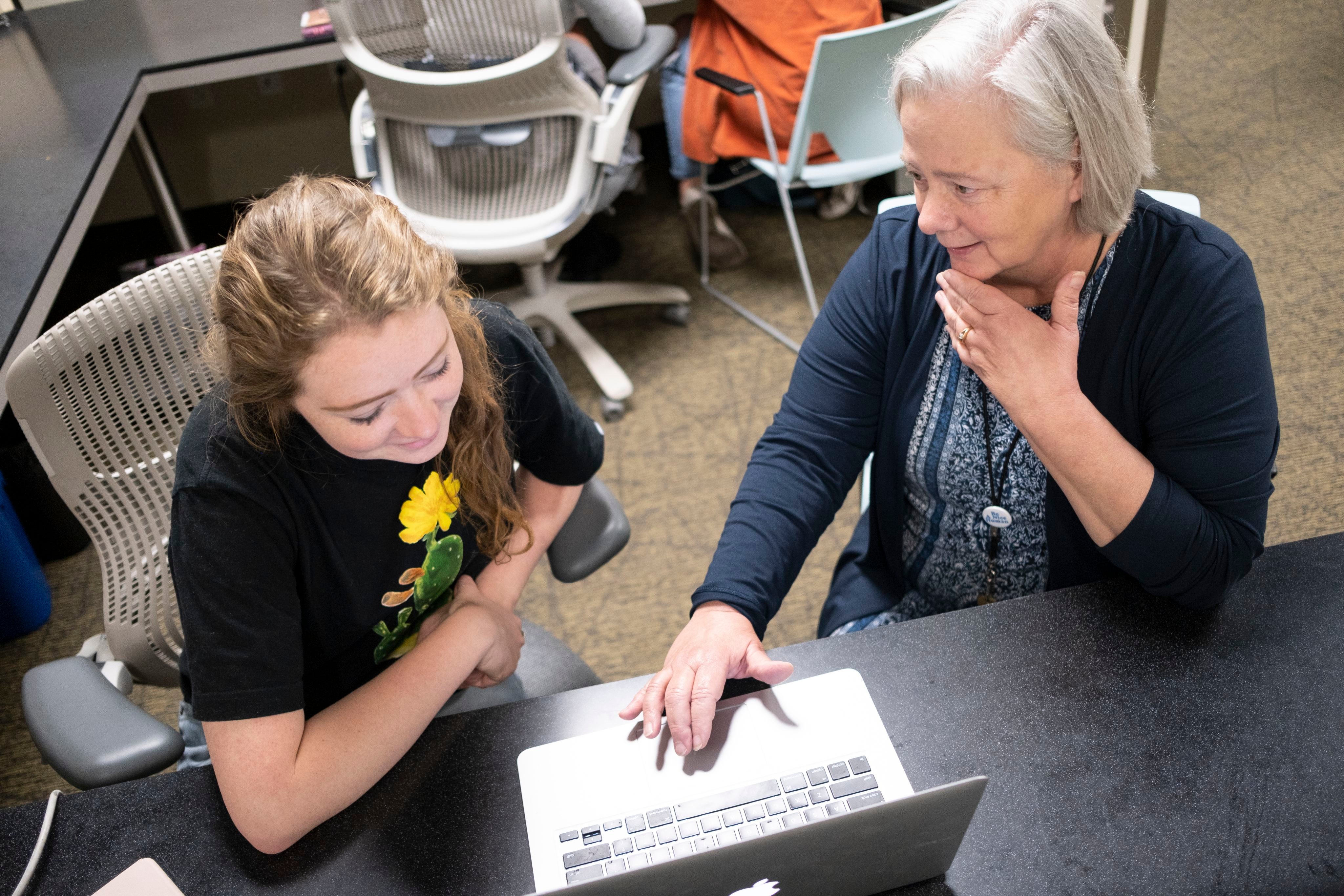
Professor Diana Dawson working with a student.
Professor Diana Dawson working with a student.
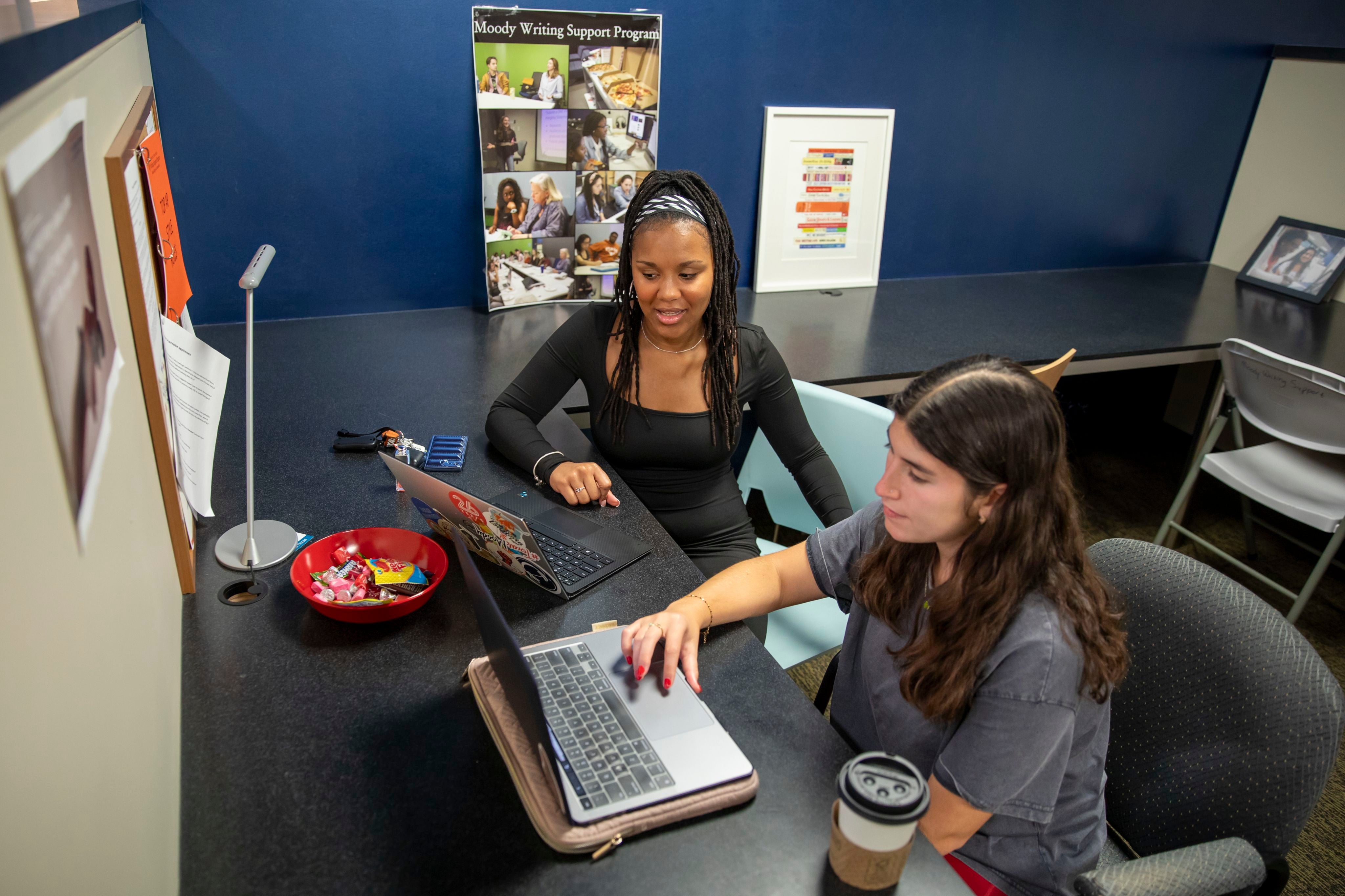
The program began with one coach taking appointments from whatever empty tables could be found on the first floor of the then-Belo Center for New Media. It has flourished into a multidisciplinary program serving thousands of students every year and recently celebrated its 10th anniversary.
"I'm grateful for all the student coaches we've had who have put a lot of heart into really trying to help the students in the best way possible,” Dawson said. “They care about the work they do, and they're the reason we've stayed strong, and we've grown. It's not me at all. It's all the coaches who've put in hour after hour."
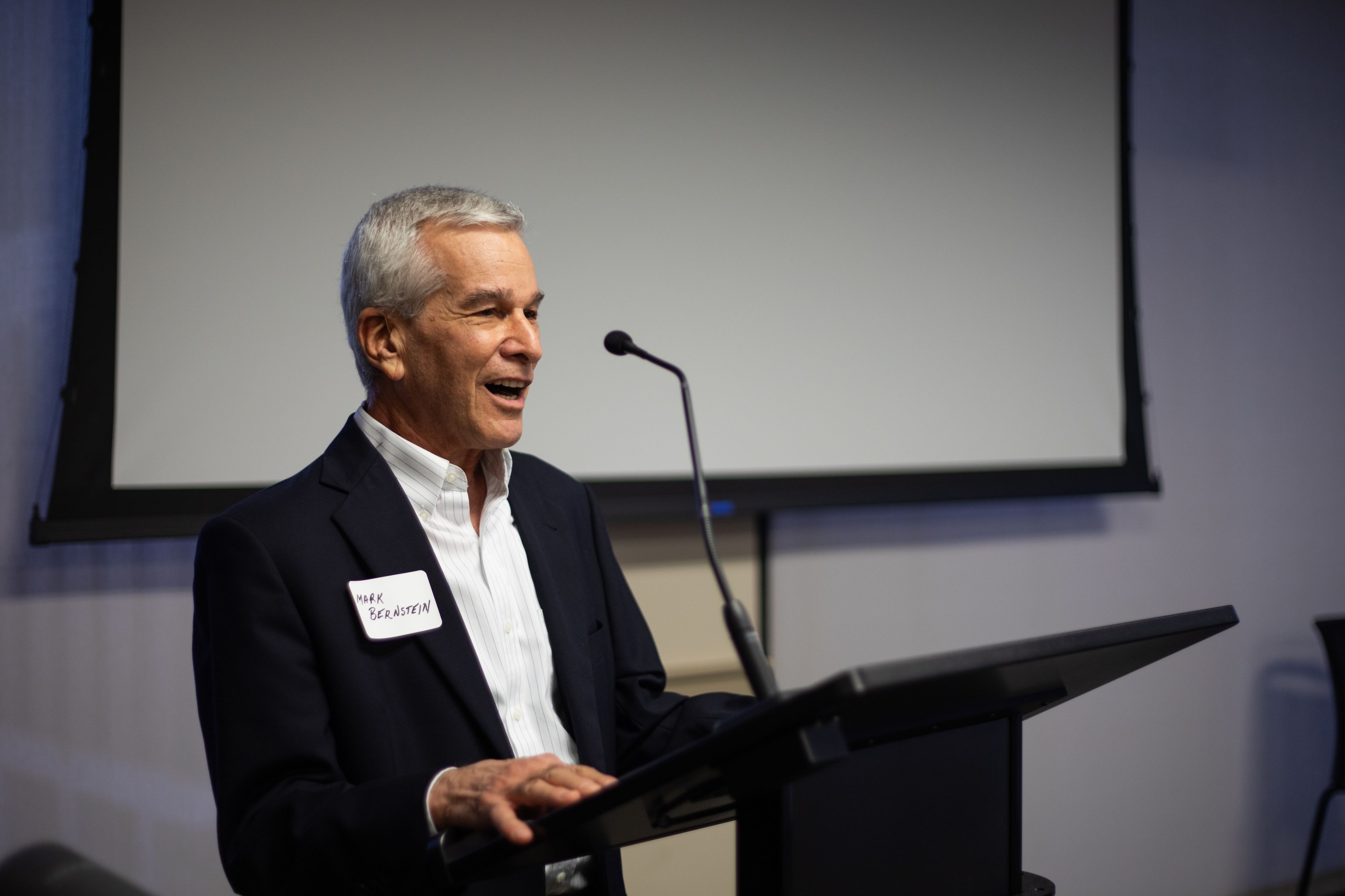
Former Associate Dean Mark Bernstein helped Dawson expand the program for all Moody College students.
Former Associate Dean Mark Bernstein helped Dawson expand the program for all Moody College students.
The program, which provides peer coaches for one-on-one help across all majors in Moody College, has seen several evolutions over its tenure. Initially, Dawson and the coaches were constantly working to raise awareness about their services and getting students comfortable with them. They would hand out slices of birthday cake and business cards every year on the anniversary of receiving funding, and they hosted news writing or character development workshops with free pizza. The writing coaches even became mentors for the first journalism-focused Girl Scout troop in Texas.
When Dawson was dreaming up the program, it was originally meant only for journalism majors. Eventually, she took the idea to Associate Dean Mark Bernstein who immediately wanted to expand it for all of Moody College. Dawson knew journalism but didn’t know where to begin with screenwriting or crafting press releases.
"At first that was intimidating to me,” Dawson said. “But then I realized I had professors in each of those schools who were writing program fans, and I basically had them on call. I very quickly found out that if I hired students who came highly recommended from them, who had done strong work in their writing classes and had that empathy gene, I’d be fine.”
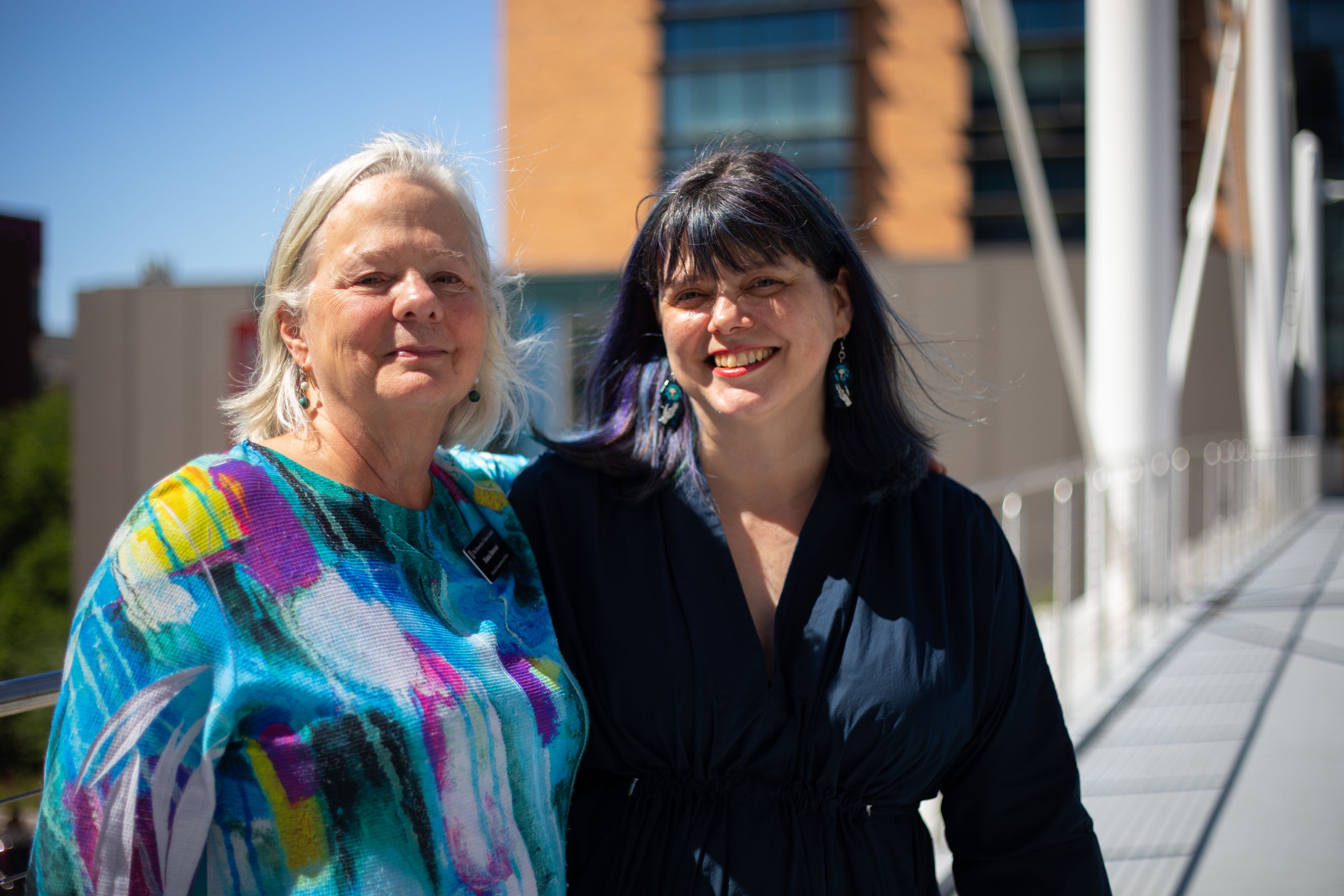
As the program continued to grow and expand, Dawson needed help keeping track of all the moving pieces and scheduling logistics. Emily Quigley, a lecturer in the School of Journalism and Media, was co-teaching the Reporting Words course with Dawson when she applied to become assistant director of the program.
“Because I already had students using the writing program, I knew how valuable it was and could see the real effect that it had on my students from that very first visit to the next one,” Quigley said. “My first taste of it was being able to see it from the perspective of a teacher and how it would affect my students to be able to have that resource.”
Several courses require students to make an appointment with the program, which can be especially helpful for younger students who are still testing the waters of their majors. When hiring coaches, Dawson and Quigley aren’t just looking for writing skills, but also empathy and kindness.
“I think that many students are reluctant to seek help, either because they’ve got that imposter syndrome that so many of us have, or they’re reluctant to seek help from a professor because that can be intimidating sometimes,” Quigley said. “So when you have a program where there are students working with other students, it takes away the issue of having to go talk to a professor, but it also takes away some of those barriers of feeling embarrassed or not sure if you should ask for help.”
"I'm grateful for all the student coaches we've had who have put a lot of heart into really trying to help the students in the best way possible,” Dawson said. “They care about the work they do, and they're the reason we've stayed strong, and we've grown. It's not me at all. It's all the coaches who've put in hour after hour."
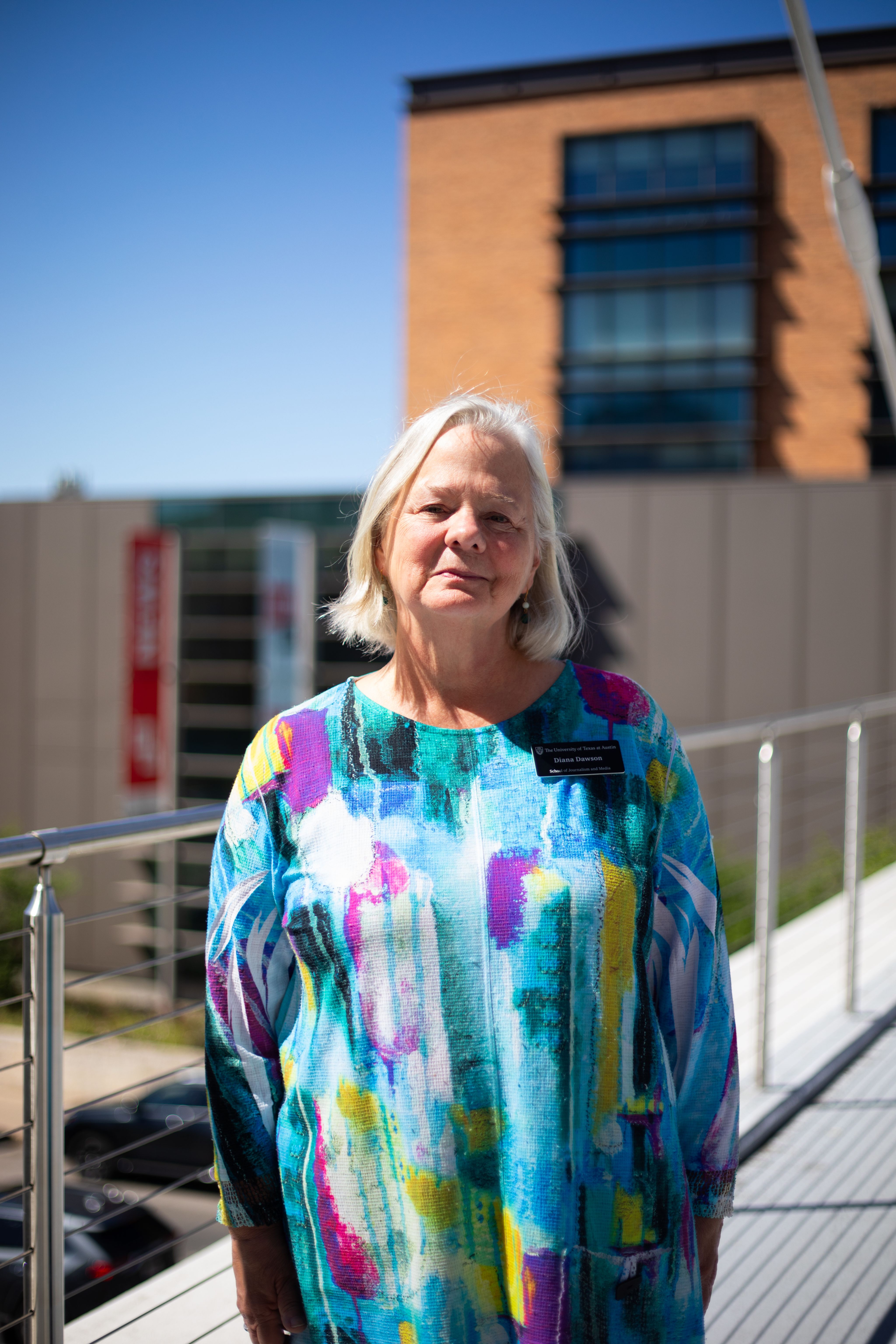
Students often instantly form a connection with coaches, especially when the coaches have made it through the same classes they are struggling with now. Many times, students will become fans of certain coaches during their first appointment and keep coming back to them for every assignment. Dawson and Quigley both love listening outside the cubicles — on the third floor of the G.B. Dealey Center for New Media — that the writing support program calls home. It’s moving to hear coaches working with students and collaborating.
Molly Stier, a journalism alumna and former coach, enjoyed coaching as much as she loved using the program’s services herself as a student.
“I found it to be a really rewarding experience,” Stier said. “It gave me a unique perspective into the different things that people are working on and how they’re thinking about different stories with different approaches. It made me a better writer as well.”
Several coaches have discovered a passion for teaching while working at the support program. Stier even plans to teach a social media class for the Stan Richards School of Advertising & Public Relations in the fall.
Coaches also get the chance to form bonds with one another during their time at the writing support program. They’ll chat between appointments or grab dinner together at the end of a long deadline week. At the end of every year, Dawson hosts a party to say farewell to the year and the graduating seniors of the program.
“I found it to be a really rewarding experience,” Stier said. “It gave me a unique perspective into the different things that people are working on and how they’re thinking about different stories with different approaches. It made me a better writer as well.”
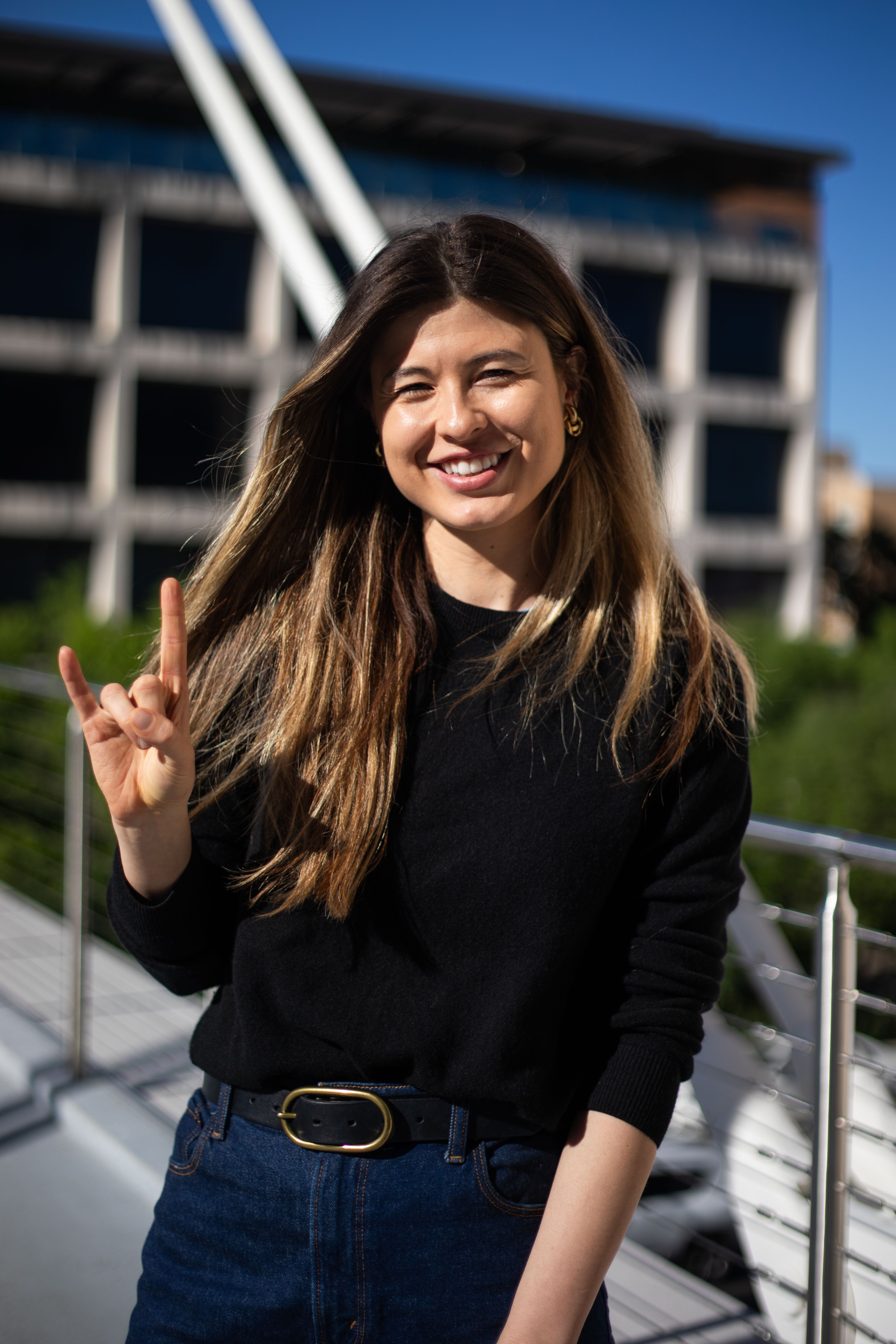
Will Kosinski, a former coach and law student at the University of California, Berkeley, said that he was surprised when Dawson reached out to invite him to apply to become a coach. He came into the journalism school with no experience at all, and it took him a while to get comfortable with his writing skills.
“I’m proud to call myself a Moody Writing Support Program writing coach,” Kosinski said. “I tell everyone that this has been my favorite job that I’ve ever had, and I think that’s because the people are wonderful, and the work is rewarding.”
Kosinski shared this sentiment at a 10th anniversary celebration for the program in April. Nearly 60 people attended — Kosinski came the furthest — to congratulate Dawson and the rest of the support program on 10 years of hard work. Coaches new and old and fans of the program caught up and listened to speeches from numerous people about the impact Dawson has had, not only on the program itself, but on each person in the room.
“I’m proud to call myself a Moody Writing Support Program writing coach,” Kosinski said. “I tell everyone that this has been my favorite job that I’ve ever had, and I think that’s because the people are wonderful, and the work is rewarding.”
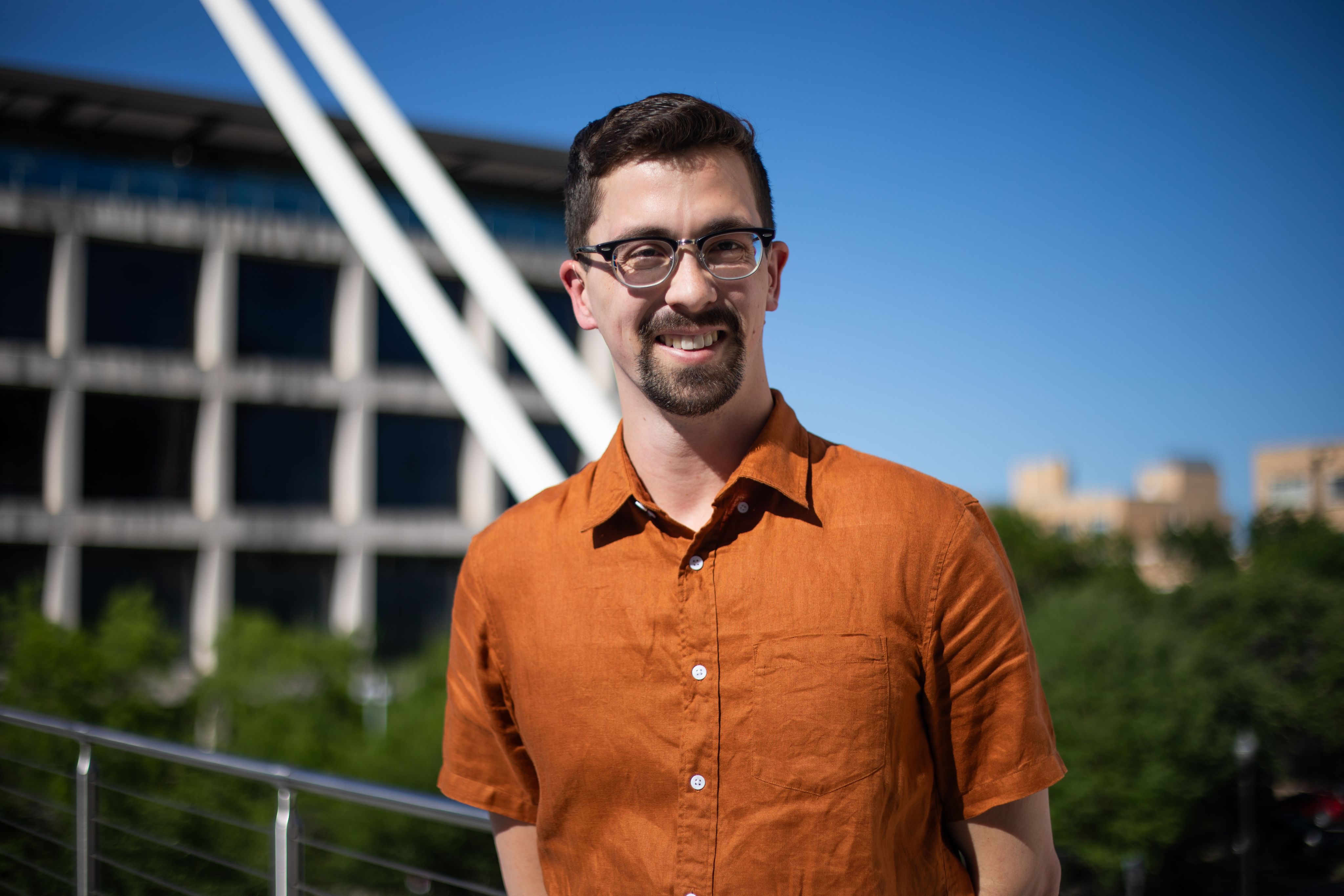
Nina Hernandez, the first writing coach Dawson hired, remembered feeling out of her element when she first came to journalism school, just like the first-gen student who inspired Dawson to start the program.
“I appreciate so much her seeing something in me,” Hernandez said. “Working with her to get this center started is still one of the best things I’ve ever done.”
During the celebration, Quigley presented Dawson with a scrapbook, filled with messages from coaches and some of her favorite memories from the past 10 years. Dawson said the program has been a patchwork quilt of lovely moments, and she hopes it will continue indefinitely, long after she’s gone.
“Thank you all for making us the program we’ve been, for fighting to keep us strong,” Dawson said. “You are the Moody Writing Support Program, and I am grateful. Let us celebrate a decade of success now. And tomorrow, we get back to the work of making dreams come true.”
“I appreciate so much her seeing something in me,” Hernandez said. “Working with her to get this center started is still one of the best things I’ve ever done.”
